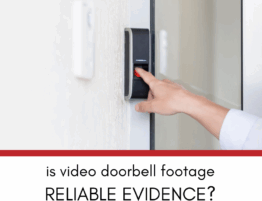
Navigating the Illinois criminal justice system can be complex and intimidating. Understanding each step can help you better prepare for what lies ahead and make informed decisions about your case.
Understanding the Illinois Criminal Justice System: A Guide for Defendants
This guide is designed to help you understand the Illinois criminal justice system and what to expect if you are facing charges. This guide explains the following:
- The arrest process
- Arraignment and bail
- Pre-trial proceedings
- The trial process
- Sentencing and appeals
- Frequently asked questions
Here’s a closer look at each.
The Arrest Process
The arrest process begins when law enforcement has probable cause to believe you have committed a crime. An officer may arrest you on the spot or obtain an arrest warrant from a judge. During the arrest, the officer will read you your Miranda rights, which include the right to remain silent and the right to an attorney. After the arrest, you will be taken to a police station for booking, where your personal information, fingerprints, and photograph will be recorded. It’s important to exercise your right to remain silent and request a lawyer immediately.
Related: Illinois criminal defense information
Arraignment and Bail
Arraignment is your first court appearance after an arrest. During this hearing, the judge will read the charges against you and ask how you plead: guilty, not guilty, or no contest. If you plead not guilty, the judge will discuss bail, which is the amount of money you must pay to be released from jail while awaiting trial. Bail ensures that you will return for future court dates. Factors like the severity of the charges, your criminal history, and your ties to the community will influence the judge’s decision on bail. If you cannot afford bail, a lawyer can help you request a bail reduction or consider other options.
Pre-Trial Proceedings
Pre-trial proceedings involve several steps that take place before the trial begins. These steps include:
- Discovery: Both the defense and prosecution exchange evidence and information about the case.
- Motions: Either party can file motions to request specific actions from the court, such as suppressing evidence or dismissing charges.
- Plea Bargaining: The prosecution and defense may negotiate a plea deal, where you agree to plead guilty to a lesser charge in exchange for a lighter sentence.
Your lawyer will guide you through these steps, helping you understand your options and develop a defense strategy.
Related: What to do if you’re charged with drug possession in Chicago
The Trial Process
The trial is where the prosecution and defense present their cases before a judge or jury. The trial process includes several stages:
- Jury Selection: If you have a jury trial, both sides will select impartial jurors.
- Opening Statements: Both sides outline their cases to the judge or jury.
- Presentation of Evidence: The prosecution presents evidence and calls witnesses to prove your guilt. The defense can cross-examine witnesses and present its own evidence and witnesses.
- Closing Arguments: Both sides summarize their cases and try to persuade the judge or jury.
- Deliberation and Verdict: The judge or jury deliberates and returns a verdict of guilty or not guilty.
Your lawyer will represent you throughout the trial, challenging the prosecution’s evidence and advocating for you.
Related: DUI charges in Illinois
Sentencing and Appeals
If you are found guilty, the judge will impose a sentence based on the severity of the crime and other factors. Sentences can include imprisonment, fines, probation, or community service. Your lawyer can argue for a lighter sentence and may present mitigating factors to the court.
If you believe there were legal errors during your trial, you have the right to appeal the verdict. An appeal is a request for a higher court to review and possibly overturn the lower court’s decision. Your lawyer can help you file an appeal and represent you throughout the process.
FAQ About the Illinois Criminal Justice System
Check out these commonly asked questions about the Illinois criminal justice system. If you don’t see your question here, please call our office and we’ll find you the answers you need.
What Should I Do if I’m Arrested in Illinois?
If you’re arrested in Illinois, stay calm and assert your right to remain silent. Request an attorney immediately and avoid answering any questions until your lawyer is present. This helps protect your rights and ensures you don’t inadvertently incriminate yourself.
How Does Bail Work in Illinois?
Bail is the amount of money you must pay to be released from jail while awaiting trial. The judge sets bail based on factors like the severity of the charges and your criminal history. If you cannot afford bail, you may be able to request a bail reduction.
Related: What happens if you drive on a suspended license in Chicago?
Can I Change My Plea After Arraignment?
Yes, in some cases, you can change your plea after the arraignment. Your lawyer can help you understand if this is an option for your situation and advise you on the best course of action.
What Happens if I’m Found Not Guilty?
If you’re found not guilty, you are acquitted of the charges and released. You will not face any penalties, but the arrest and trial records may still exist. Your lawyer can help you explore options for sealing or expunging these records.
How Can a Lawyer Help During the Trial?
A lawyer can provide crucial support during the trial by presenting evidence, cross-examining witnesses, and making legal arguments on your behalf. They ensure your rights are protected and work towards the best possible outcome for your case.
Do You Need to Talk to an Attorney?
If you’ve been accused of a crime, we may be able to help you – and don’t worry: It’s completely confidential. Call us at 847-920-4540 or fill out the form below to schedule your free, private consultation with an experienced and skilled Chicago criminal defense attorney now.
Contact Us
"*" indicates required fields








